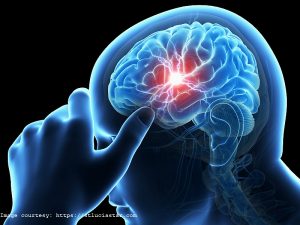- Home
- Editorial
- News
- Practice Guidelines
- Anesthesiology Guidelines
- Cancer Guidelines
- Cardiac Sciences Guidelines
- Critical Care Guidelines
- Dentistry Guidelines
- Dermatology Guidelines
- Diabetes and Endo Guidelines
- Diagnostics Guidelines
- ENT Guidelines
- Featured Practice Guidelines
- Gastroenterology Guidelines
- Geriatrics Guidelines
- Medicine Guidelines
- Nephrology Guidelines
- Neurosciences Guidelines
- Obs and Gynae Guidelines
- Ophthalmology Guidelines
- Orthopaedics Guidelines
- Paediatrics Guidelines
- Psychiatry Guidelines
- Pulmonology Guidelines
- Radiology Guidelines
- Surgery Guidelines
- Urology Guidelines
New Surgical technique good for stroke prevention

EDAS (encephaloduroarteriosynangiosis) -- a surgical technique -- significantly reduces death and the rate of stroke recurrence for patients with severe atherosclerosis of the brain arteries, demonstrate findings of the Phase IIa clinical trial presented at the World Stroke Congress in Montreal.
Atherosclerotic disease is characterized by plaque buildup resulting in narrowing of the brain arteries. It is one of the most common causes of strokes.
Neurosurgeons performing EDAS reroute arteries from the scalp and the membranes that cover the brain and place these arteries under the skull near areas of the brain at risk of stroke. Over time, new blood vessels form, creating fresh pathways for blood and oxygen to reach the brain.
Also Read: Recreational use of marijuana may increase stroke risk
Nestor R. Gonzalez, professor of Neurosurgery and director of the Neurovascular Laboratory at Cedars-Sinai, enrolled 52 patients with severe brain atherosclerosis, also known as intracranial atherosclerotic disease, or ICAD, who showed symptoms of either a recent stroke or a mini-stroke, called a transient ischemic attack.
The patients received EDAS surgery, along with intensive medical management, which included diet and lifestyle changes, blood thinners and other medications to control blood pressure, cholesterol and blood sugar levels.
Also Read: Simple test may predict prognosis of stroke
Key Findings:
- After one year, 9.6 percent of the patients treated with the surgery experienced another ischemic stroke or died, compared with 21.2 percent of patients in a matched control group who received only intensive medical management.
- Two of the EDAS patients had small wound openings that required additional surgical interventions, but there were no intracranial hemorrhages or other serious adverse events.
"Our findings in this intermediate-stage trial are promising for applying EDAS surgery to intracranial atherosclerotic disease," said Gonzalez said. Previously, EDAS has been used for moyamoya disease, a rare cerebrovascular disorder that affects younger patients.
Gonzalez said the new trial addressed a serious medical need. "Even under the best current treatments, ICAD carries high rates of recurrent stroke and death, compared with other causes of stroke," he said. "Developing new therapeutic strategies is crucial for ICAD patients."
Current ICAD therapies—in addition to intensive medical management—include bypass surgery to connect a blood vessel from outside the brain to a vessel inside the brain, as well as angioplasty with stenting, which involves inflating a tiny balloon inside a cerebral artery to open it up and placing a stent device inside the artery. Despite advances in medical care, annual rates of recurrent stroke and death remain high, at 15 percent or more for ICAD patients, according to published research.
Gonzalez said his team is working with the stroke prevention working group of the National Institutes of Health to develop a proposal for a Phase III randomized clinical trial across multiple institutions to further test the effectiveness of EDAS as compared with intensive medical management. While this Phase IIa trial selected patients from previous studies as the control group, the Phase III study would enroll new ICAD patients for both the control and experimental groups, he explained.

Disclaimer: This site is primarily intended for healthcare professionals. Any content/information on this website does not replace the advice of medical and/or health professionals and should not be construed as medical/diagnostic advice/endorsement or prescription. Use of this site is subject to our terms of use, privacy policy, advertisement policy. © 2020 Minerva Medical Treatment Pvt Ltd